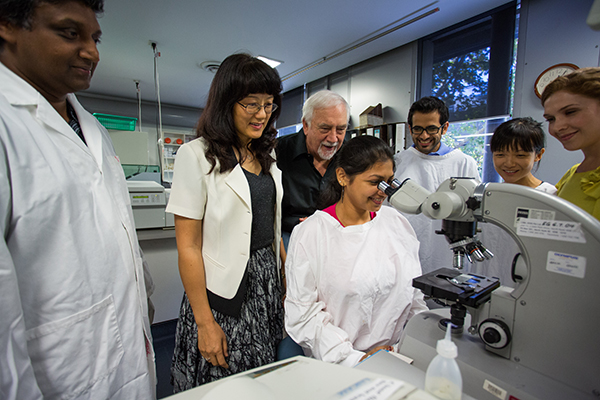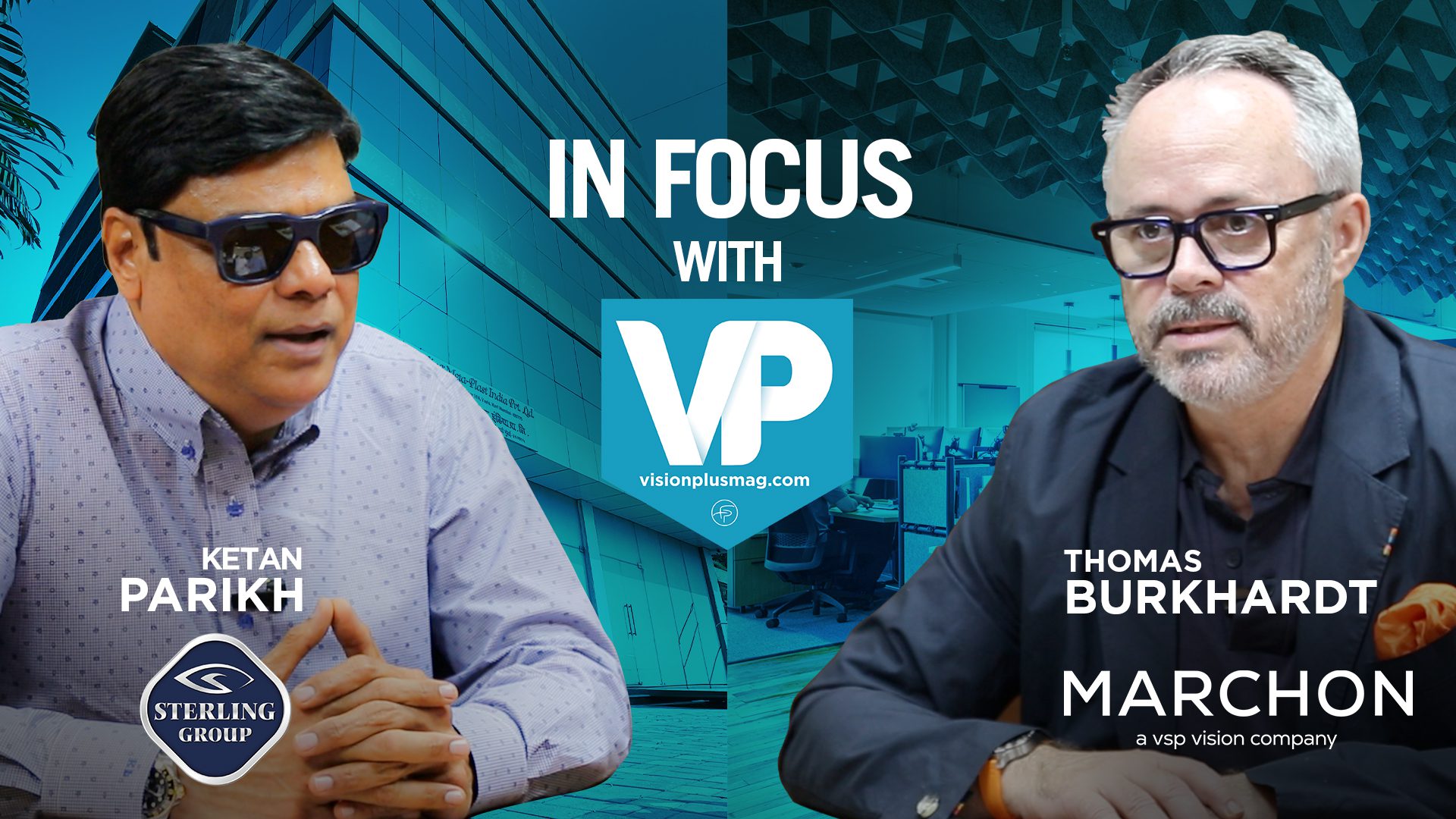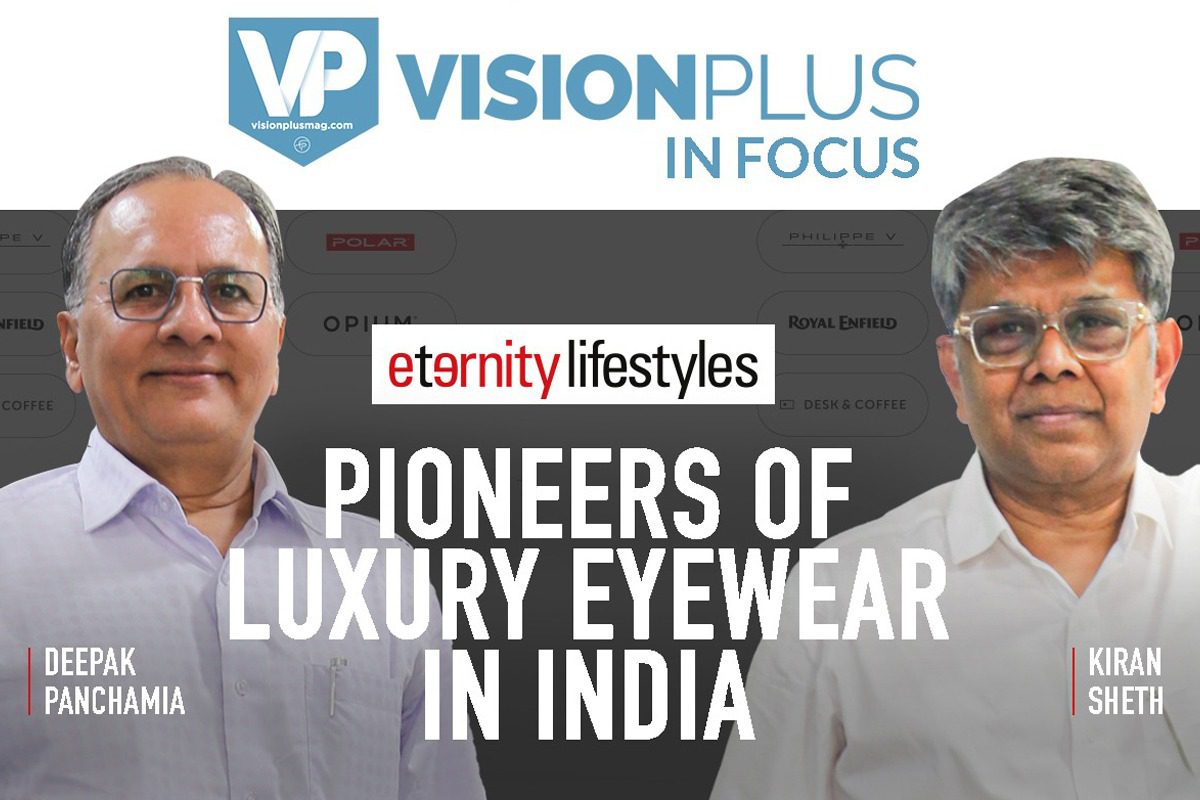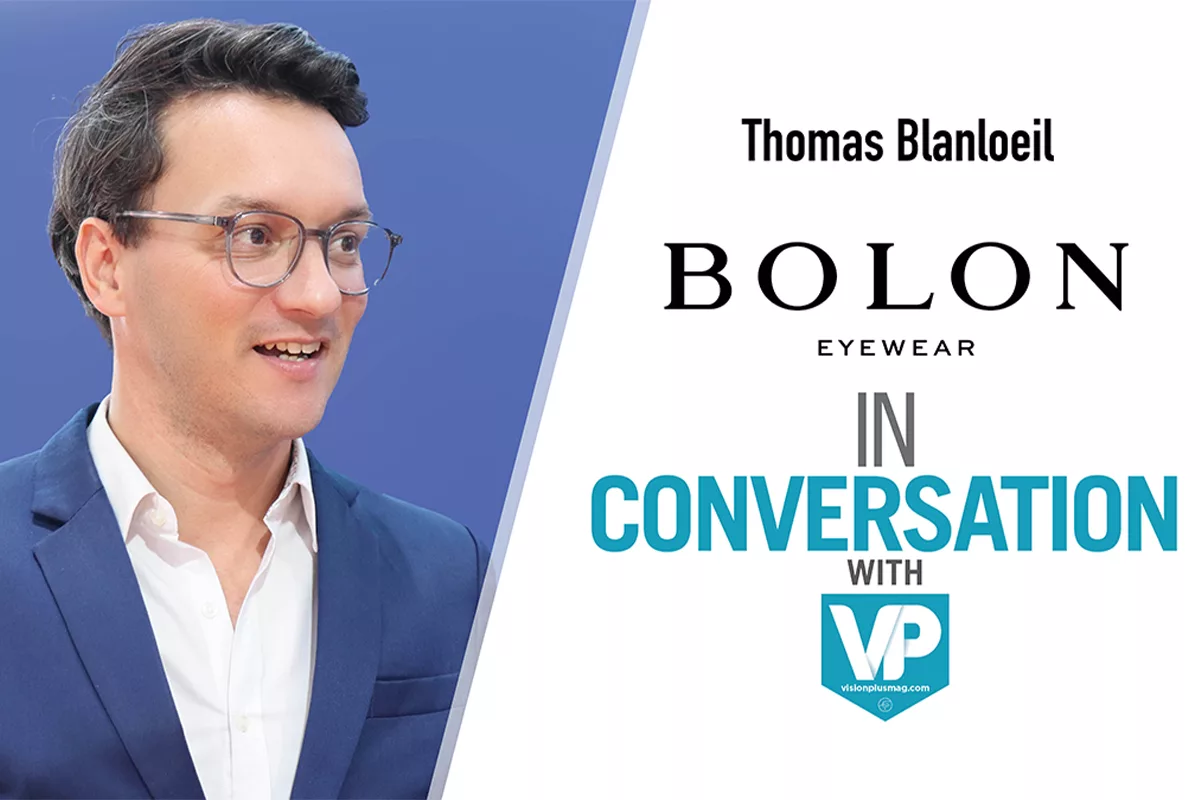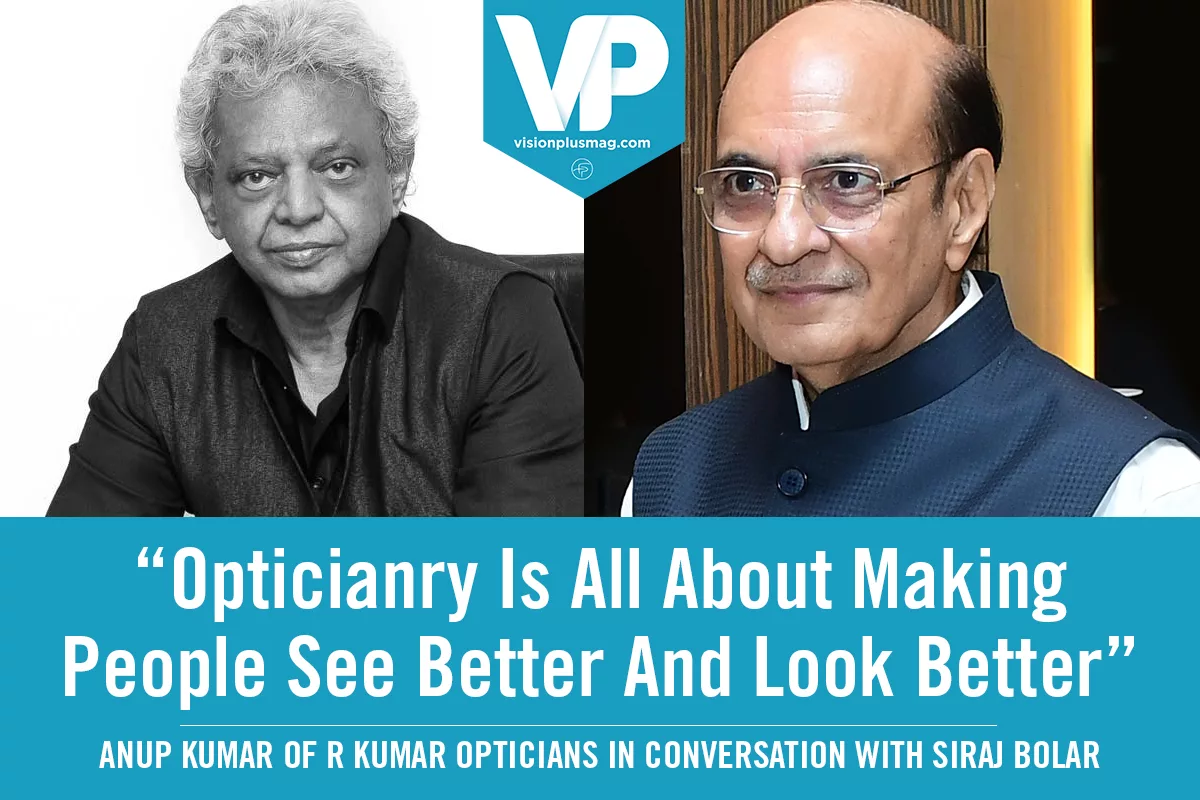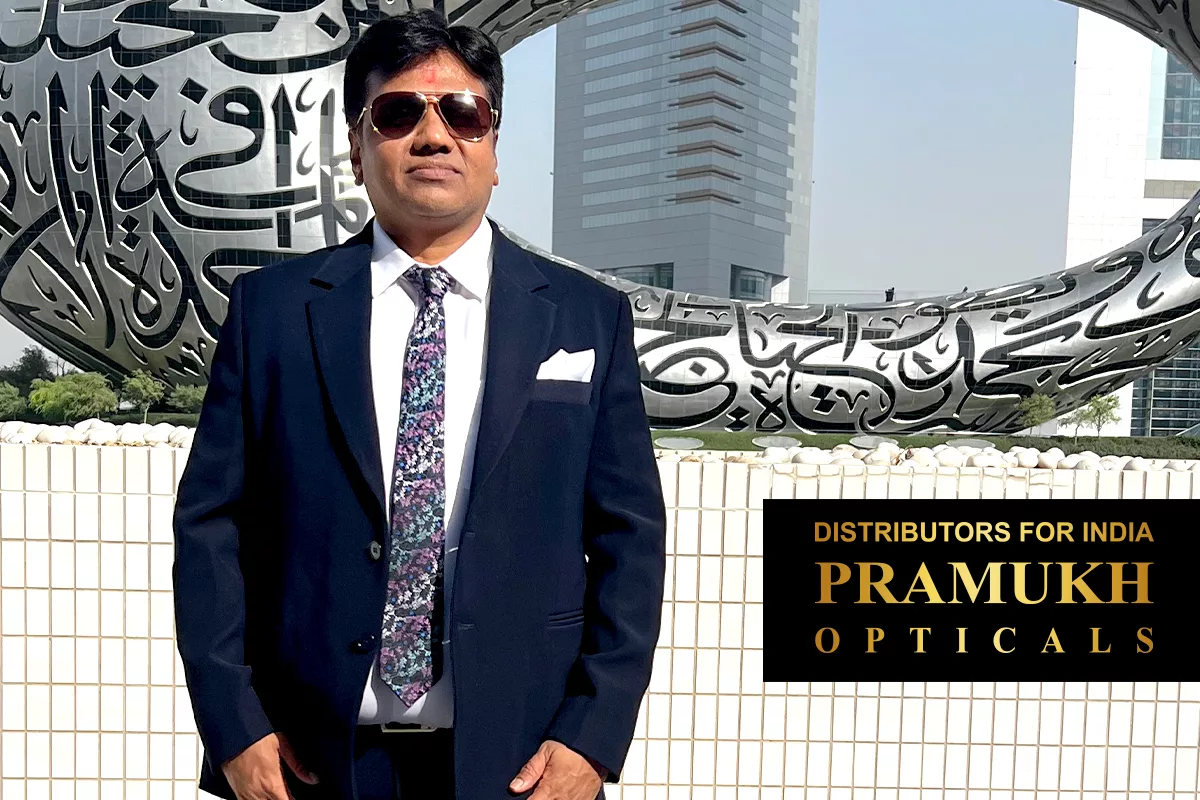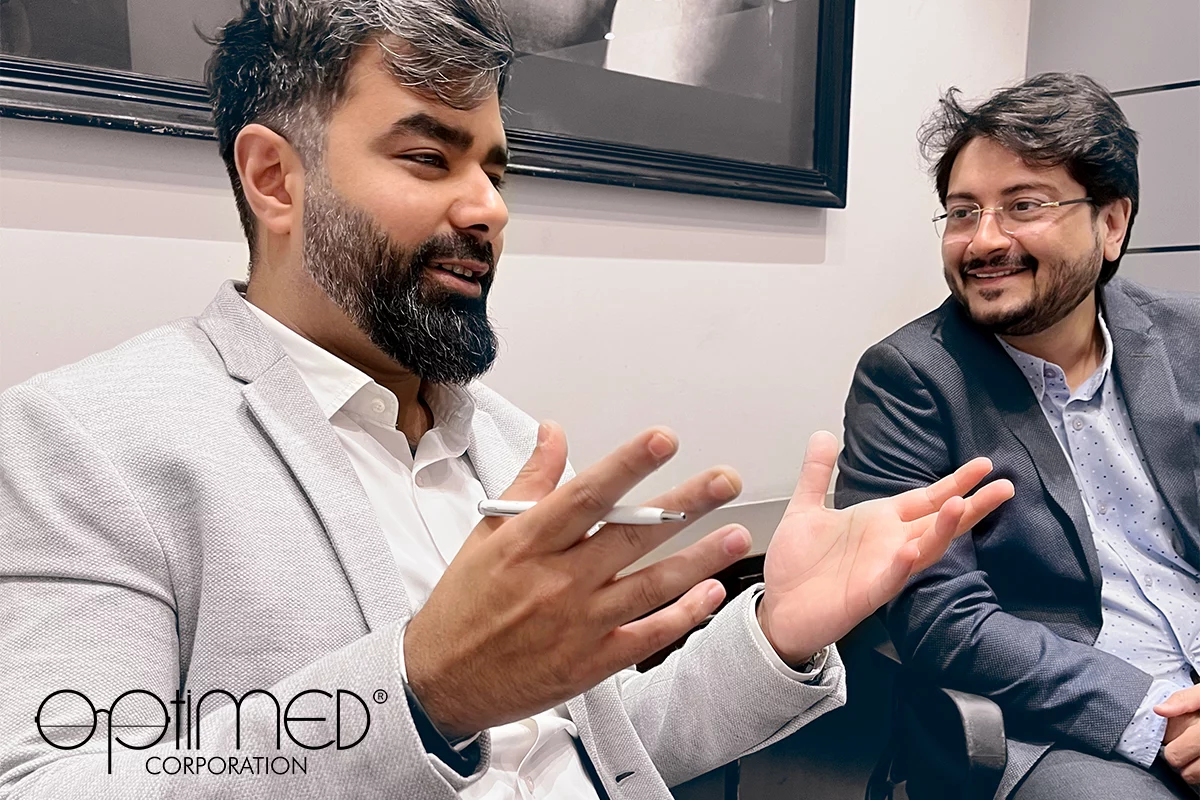The Brien Holden Vision Institute, a social enterprise, has transformed the eye care landscape through its educational programmes that hone the right talent and develop their skills to help improve the quality of life for everyone
Headed by Professor Brien Holden, one of the most prominent and respected figures in the eye care industry, the Brien Holden Vision Institute has trained thousands of eye care personnel to achieve its mission of eradication of preventable blindness and vision impairment. Through its presence in many parts of the world, including India, the Institute has developed professionals who have not only succeeded in their chosen profession, but also helped enrich the world through their creative solutions. VisionPlus speaks to Professor Holden, who was recently awarded with optometry’s highest scientific honour – the Charles F. Prentice Medal, to find out more about the Institute’s work, educational programmes and future plans.
VisionPlus (VP): Students of optometry in India face a lot of uncertainty in terms of how their career will shape up after completion of their education. Please share with our readers how your education helped shape you.
Professor Brien Holden (BH): One thing is certain – that the needs and demands for vision correction are immense and growing rapidly in India. Some 133 million people are unnecessarily blind or vision impaired simply because they do not have a pair of glasses, including 12 million children. So, there is a very important role for all the new optometrists in India. My undergraduate degree in some ways overtrained me in science and undertrained me in clinical knowledge and experience – but that was the sixties, it has changed substantially since then.
My PhD training in England in the late sixties was a wonderful opportunity to discover the world of research, the changes in global society and the social upheaval of the era. Research has been a major and most enjoyable part of my life, introducing me to some of the best questions, and people, in science, optometry and ophthalmology.
VP: What distinguishes the Brien Holden Vision Institute’s postgraduate programme from those offered by other institutes?
BH: What is valuable about our programme is that it, on the one hand, is focused on innovation, transfer of technology between sectors and within the organisation, and the realisation of commercial outcomes from research activities, and on the other hand, we work on the clinical and social realities of public health delivery and blindness prevention. This mixture enables students to learn how science can be applied to provide solutions to real world problems right across the human landscape.
In the process, some of them are exposed to facets of the commercial research environment, such as dealing with intellectual property and conducting research in collaborative groups, that are difficult to access during the course of traditional postgraduate training. Also, through our collaborations with many leading research organisations around the world, our students have access to a broad range of expertise. We excel in cultural diversity, recruiting people from very diverse backgrounds and from many different countries, including Australia, Burma, China, Germany, Iran, India, Netherlands, the Middle East, Nepal, Pakistan, South Africa and USA.

VP: Which potential areas can students, who wish to complete their post graduation from your institute, take up research work in?
BH: We have attracted postgraduates from many disciplines including – optometrists, ophthalmologists, epidemiologists, physiologists, biochemists, microbiologists, cell biologists, immunologists, polymer chemists, surface chemists, engineers and material scientists. Many of them have gone on to highly successful careers in research institutions, industry and Government. Others have well-established academic positions, some have become public health specialists, and several outstanding students remained with Brien Holden Vision Institute where they have made vital contributions as researchers.
VP: What scholarships does the institute provide for students?
BH: Since the 1980s we have provided around $20 million in scholarships and student fees for postgraduate research students – around 40 from India. Rather than bringing students to Australia now, we are looking to encourage Indian students to undertake postgraduate research in India. So, we are providing funding through the India Vision Institute (IVI) to offer scholarships to outstanding candidates. IVI offers higher education scholarships to pursue PhD study in India. It also offers substantial research grants each year to undergraduate and postgraduate students of optometry for outstanding projects. From 2012, IVI has offered 2 higher education scholarships and 15 research grants to students. I encourage anyone interested to get in touch with IVI to explore these opportunities.
VP: For over 3 decades, you have been actively involved in transforming the eye care landscape in India through your association with the institutes here. Can you elaborate on the recent educational initiatives you have introduced to facilitate your goal and how those will help the students?
BH: My friendship, admiration and collaboration with Nag Rao and the people at LV Prasad Eye Institute has been a wonderful experience and the cornerstone of many of the advances we have made in understanding the ocular response to contact lenses, inflammation and infection. His initiation of the LV Prasad School of Optometry was a landmark in Indian optometry.
When I was asked by our Foreign Minister to join the Australia-India Council, I was given the brief of doing something for the health of India. The Chair of the Board, Mr John McCarthy, a former High Commissioner to India, and Nag Rao and Vinod Daniel, said I should help sort out the organisation, registration and development of optometry.

First, all the various groups in Indian optometry needed to have one voice and the Indian Optometry Federation (IOF) was born. The Optometry Council of India (OCI) was established as a self-regulating body for the registration and recognition of both individual optometrists and schools. The Association of Schools and Colleges of Optometry (ASCO) had already been established and was doing an excellent job of raising the standards of optometric education. These are now the three pillars for promoting and developing optometry in India. While IOF advocates the cause of optometry in India, OCI recognises and will regulate optometrists and schools until the ‘Optometry Acts’ are passed by the government.
IVI, an initiative of Brien Holden Vision Institute and LV Prasad Eye Institute, is a non-profit trust; a catalyst and a think tank to facilitate the development of optometry in India. IVI is focused on supporting and promoting awareness, research, education and technological development in Indian optometry to advance capacity in vision correction and prevention of eye disease and blindness.
Over a period of 36 months, IVI has conducted 58 capacity building workshops and 30 seminars; has offered 466 conference scholarships, 17 travel grants, 15 research grants and 2 higher education scholarships benefiting over 4,300 optometry professionals. The IVI Academy for Eye Care Educators and the online resource platform contribute towards development of academic resources in optometry in India through their many initiatives.
VP: India needs over 100 schools of optometry to meet the increasing demand for fully qualified optometrists. According to you, what regulatory and infrastructure changes are required to meet this need?
BH: According to global norms, India needs 1,15,000 optometrists to provide excellent vision care to all the people, as per the ‘Delhi Declaration on Optometry and Blindness Prevention in India, 2010’. However, India has approximately 9,000 four-year trained optometrists and 40,000 two or three-year trained eye care personnel. A study conducted by IVI identified over 160 institutions in India offering optometry programmes. While this number might appear to be very high, the currently available human resources fall short in servicing the scale of demand. A multi-pronged approach focusing on quality and quantity is required and I am happy that all key optometry bodies are working together to achieve this objective.
The profession of optometry in India is yet to be recognised and regulated by the government as a health-care profession, and optometrists as primary care providers for eye-health and playing a significant role in prevention of avoidable blindness. Recognition of optometry will also establish it as a viable career option for youngsters, thereby increasing the inflow of quality manpower.
A majority of the educational institutes offering optometry programmes struggle with poor faculty-student ratio, lack of infrastructure, trained educators, and other key development factors. ASCO and IVI are addressing this through various capacity building initiatives, and leadership programmes.

IVI supports select optometry institutions with potential to develop into quality institutions. Through the recently launched Online Seminar for Institutional Development, IVI is training heads of optometry institutes in achieving holistic development of their institutes including upgrading of curriculum, resources and infrastructure. The IVI Faculty Support Program and EyeTeach initiatives are helping to train educators. Simultaneously, IVI awareness initiatives are increasing uptake of optometry schools.
VP: You are an educator yourself. Any insights you would like to share with the teaching community that can help them make a difference?
BH: Education is the key to progress, to eliminating poverty and inequality and to giving every person the right to maximise their quality of life and contribution to society. There is no nobler profession than to be a teacher. Teach well and teach care and concern for every person’s health and welfare.
VP: Thank you, Professor Holden, for your valuable time and for sharing your insights.

